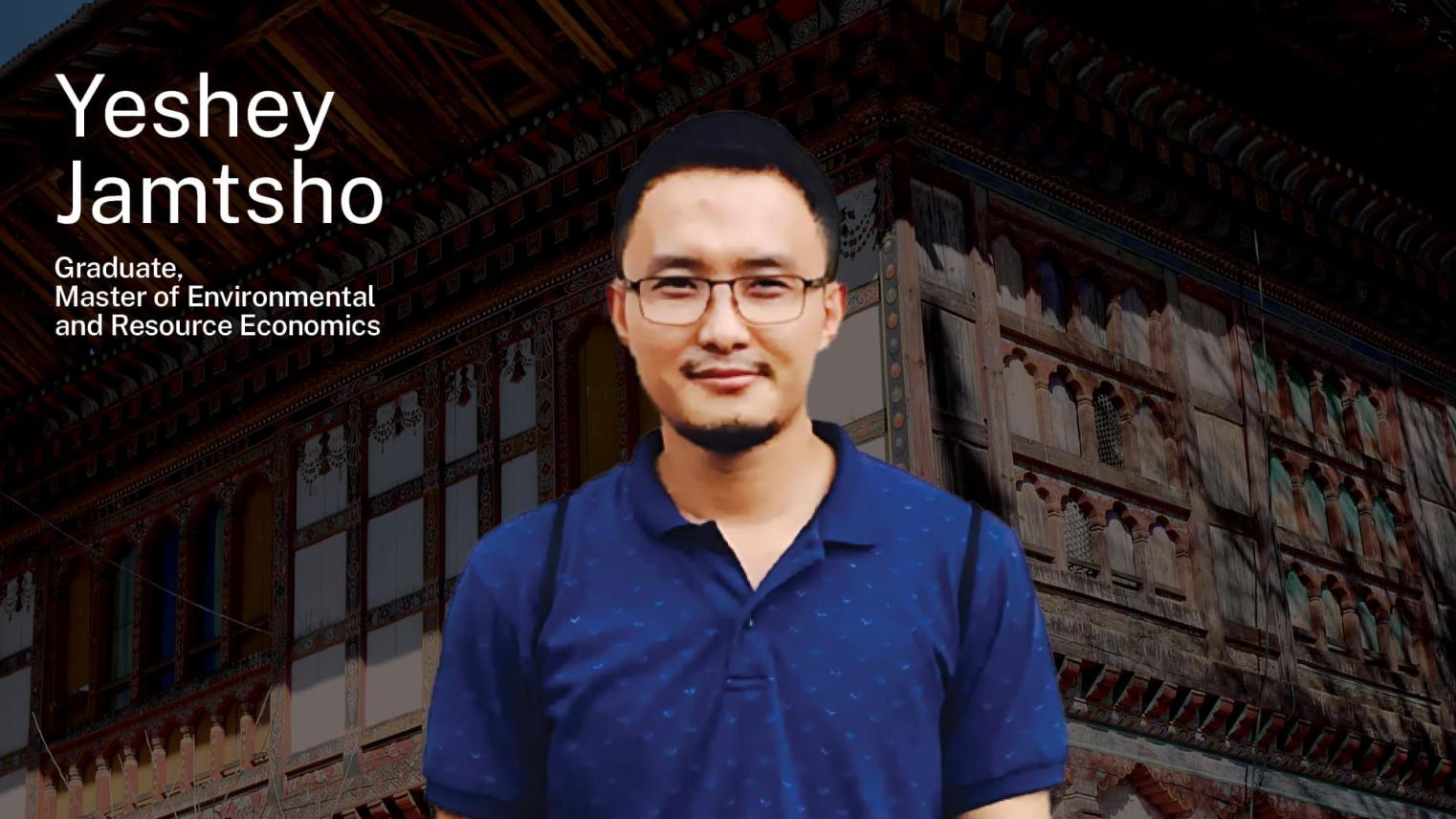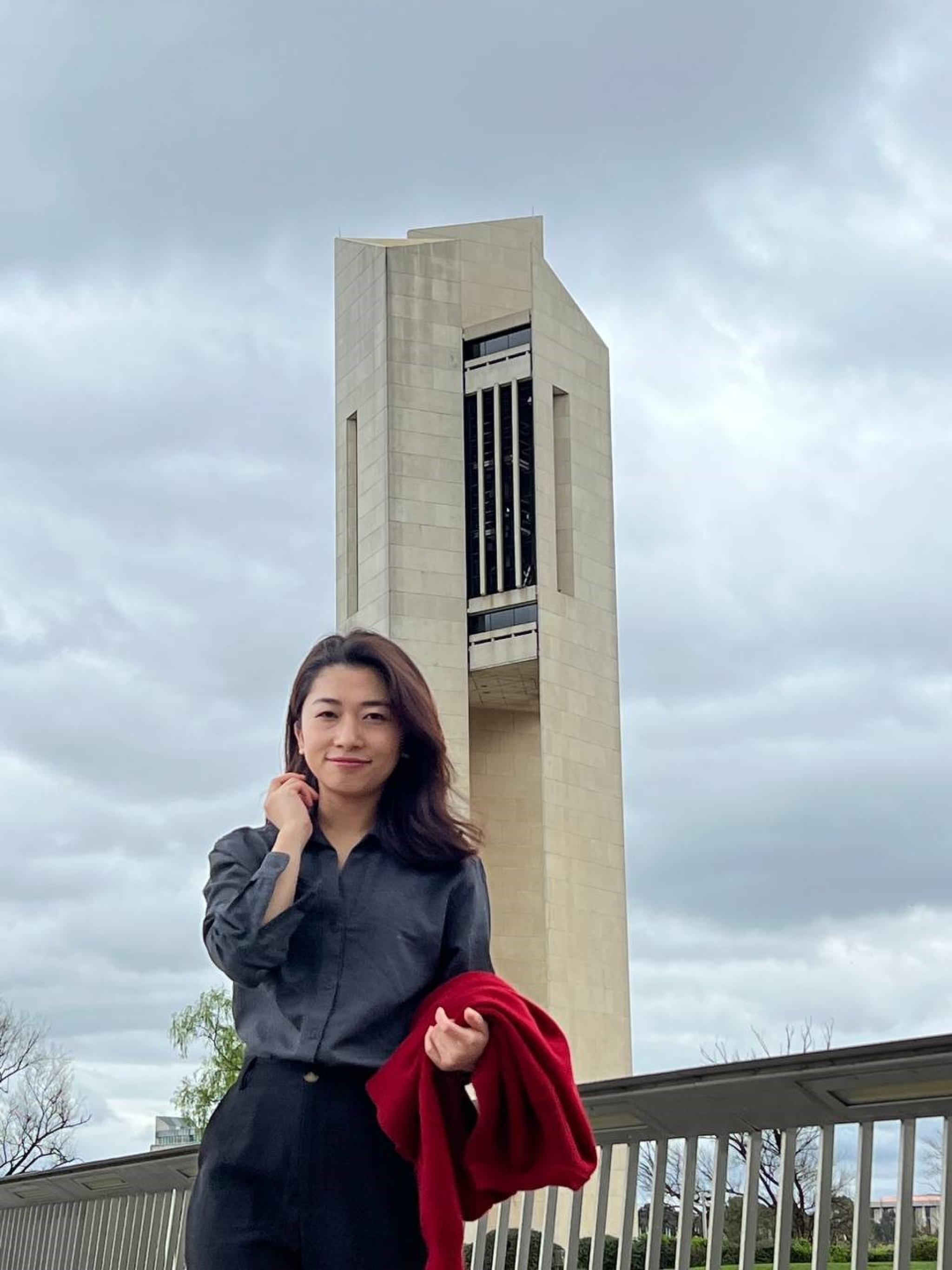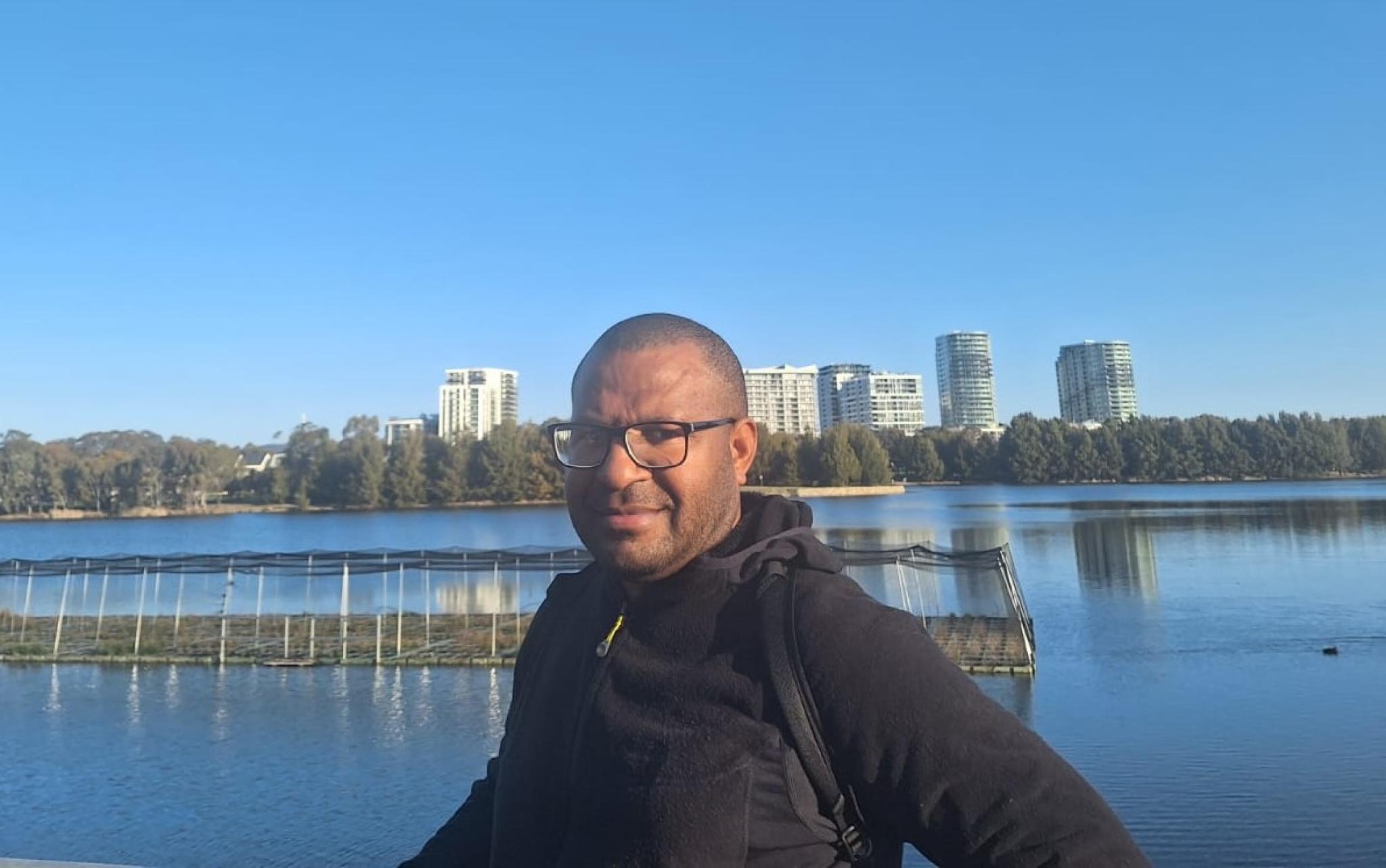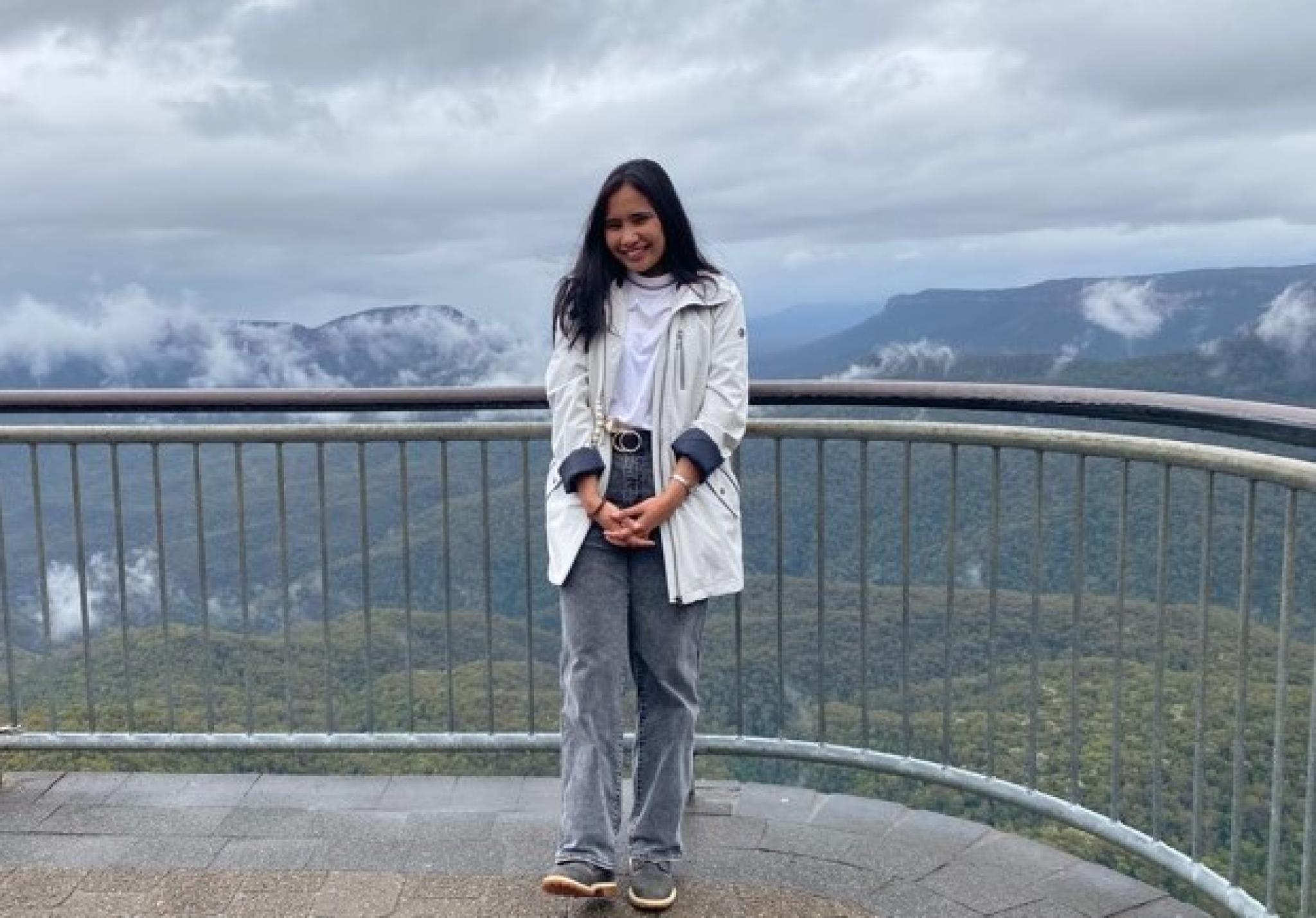Meet our Graduates: Yeshey Jamtsho – envisioning sustainable urban planning for Bhutan

Yeshey Jamtsho, an urban planner from Thimphu, Bhutan, recently completed his Master of Environmental and Resource Economics at the Crawford School of Public Policy. He is passionate about integrating environmental conservation into urban development. His experience in Bhutan’s urban planning sector motivated him to deepen his knowledge of environmental economics, with the aim of bringing more sustainable urban planning practices to his home country. At Crawford, he found a supportive learning environment that helped him hone his skills. As Deputy Chief Urban Planner at Bhutan’s Ministry of Infrastructure and Transport, he is applying his expertise in urban planning projects. Here, Yeshey gives some insights into his career journey.
Yeshey, can you tell us a little bit about yourself?
My name’s Yeshey, and I am from Bhutan. I work and live in Thimphu, the capital city of Bhutan. I grew up in a small family in eastern Bhutan. As the eldest of the three children, I have always had to shoulder the responsibility of setting a good example for my siblings, be that in terms of studies, work, or other responsibilities. Right from my childhood days, this has motivated me to work hard, study well, and be the best version of myself.
Fast forward to 2012, after getting an undergraduate degree in architecture, I joined the Royal Government of Bhutan, where I worked for over 10 years. In between, I also studied and received a master's degree in urban planning in Germany.
With experience in architecture, urban development, and urban planning, and given the widespread environmental issues and challenges in and outside of Bhutan, I want to mainstream environmental conservation and economics in urban planning and development processes and decisions. Likewise, in today’s materialistic world, I feel the only way to ensure environmental conservation in development decision-making is by imputing a strong economic rationale in the protection thereof.
So, having completed and received essential skills from Master of Environmental and Resource Economics from the Crawford, I am highly motivated and impassioned to conduct research and integrate environmental economics in urban development and planning processes inside and outside Bhutan.
Why did you decide to study a Master of Environmental and Resource Economics degree at the Crawford School?
As an urban planner and architect, I have been involved in many development projects of varying scales. One thing that has left an indelible mark on me is the low level of importance that the environment is given in urban development, especially in the context of many environmental services not being given a monetary value to attest to their importance.
In that respect, in many years of my urban planning practice, I've wanted to acquire skills and knowledge to broaden my knowledge in environmental economics and use it to contribute to pro-environmental policy and practice in urban development and planning.
The Master of Environmental and Resource Economics offered by Crawford has courses that are bespoke and relevant to all my aspirations and needs, as mentioned above, to contribute to environmental planning and development in Bhutan and beyond.
What topic area are you most interested in, and why?
While all courses were equally interesting and challenging, the courses in environmental economics, energy economics, econometrics, and agricultural and resource economics were most interesting and relevant to my needs.
How would you describe your experience at Crawford?
The lecturers and staff are very knowledgeable, accommodating, and considerate in that they understand that most of us, including myself, come from non-economic backgrounds, so they adjusted and prepared their teaching materials, tutorials, and teaching methods to suit us.
My peers at Crawford are humble, friendly, and supportive. Our friendship not only existed in the confines of the campus but also extended beyond in the form of informal gatherings, dinner plans, etc. I am sure we will be friends forever!
Crawford is focused on ‘From local to global: a journey in public policy’. Can you share your thoughts on how your experiences with local policy issues have shaped your perspective on global policy challenges? How will this perspective guide your future endeavours in public policy? What do you think policymakers in Australia and the region should focus on?
I feel that the main issue here is the disconnect between the global and local policies, which do not heed to the fact that all the local policies have impacts that eventually culminate into bigger and larger global impacts. This issue stands out in many of the courses that I participated in, including in one of my courses related to climate change.
I feel local policies should abide by the wider global policies, and importantly, there has to be stronger enforcement and legislative mechanisms to ensure a globally concerted effort. Otherwise, it is simply going to be the case of ‘us and them' and not ‘together and stronger.’
What is the most memorable experience from your time at Crawford?
My most memorable experience at Crawford is the level of diligence, study, and effort that I had to put in for my course. This study has by far provided me with invaluable and diverse sets of knowledge, experience, and challenges. I will cherish these moments in terms of how they improved me, mainly in the field of research and analysis.
What advice would you give to prospective students considering studying this course at Crawford?
The only advice I have for them, and like any economist would say, is, “While you are in Crawford, make sure you maximise, or rather, optimise your learning and experience.”
What’s next for you after graduation?
For now, I am still going to be an urban planner at the Ministry of Information and Transport, but I am keeping my options open, and I might as well explore for a job/project that best integrates my skills and knowledge of environmental economics and urban planning.
Congratulations to Yeshey on completing his studies! His journey at Crawford has been a rewarding one, and he extends heartfelt thanks to the staff, lecturers, and fellow students for their unwavering support, which made his time at the school truly special. Yeshey is excited to apply his new skills to urban planning projects in Bhutan, bringing a more sustainable approach to the country's development. We wish him all the best as he continues to make a difference in his community and beyond.


